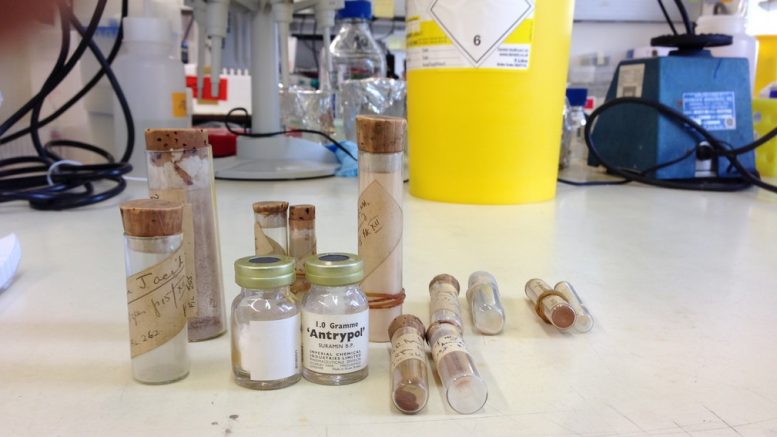Autism rates have skyrocketed over the past decade. Current estimates show that 1 in every 68 children are effected by it. The causes of autism are now a political issue and something which government agencies and media conglomerates try to subvert as a way to pursue mandatory vaccination laws.
Yesterday, news broke that a 100 year old drug could be the “cure” for autism. Specifically, the drug is said to reverse the symptoms of autism. Let’s take a minute to understand the drug creators logic base.
The drug’s effects are based from research showing that cells harden membranes as a reaction to viruses and pollutants. The reaction is considered a normal reaction that waits for a dangerous threat to pass. The research suggests that autistic children’s brains get stuck in this mode.
Suramin is a drug developed by Dr Robert Naviaux, who worked at the San Diego School of Medicine. The drug was created in 1916. It was developed as a way to cure what’s known as sleeping sickness, which is a disease spread by flies in sub-Saharan Africa. The drug was given to 10 autistic boys (autism rates in boys is much higher than that of girls). The boys ages ranged from five to 14.
“After the single dose, it was almost like a roadblock had been released,” he said. “If the future studies show that there’s continued health benefits, this could be a game-changer for families with autism.”
“The six year old and the 14 year old who received suramin said the first sentences of their lives about one week after the single suramin infusion,” Naviaux told the UC San Diego Health website. “This did not happen in any of the children given the placebo.”
Dr Naviaux believes that suramin can ‘un-stick’ the cells by inhibiting the signal they release when they sense danger, which can help normalize the response.
One parent’s son had not spoken a ful sentence in over a decade had this to say.
“Within an hour after the infusion, he started to make more eye contact with the doctor and nurses in the room. There was a new calmness at times, but also more emotion at other times.”
“He started to show an interest in playing hide-and-seek with his 16-year-old brother. He started practicing making new sounds around the house. He started seeking out his dad more.”
Naviaux now wants a larger sample size.
“This work is new and this type of clinical trial is expensive,” he said. “We did not have enough funding to do a larger study. And even with the funding we were able to raise, we had to go $500,000 in debt to complete the trial.”
Side effects of suramin, as listed per wikipedia, are “nausea, vomiting, diarrhea, headache, skin tingling, and weakness. Sore palms of the hands and soles of the feet, trouble seeing, fever, and abdominal pain may also occur.”In case you were curious, Bayer owns the drug, it is distributed under the name, Germanin.



Be the first to comment on "New Pharma Med Claims ‘It Cures Austism’"